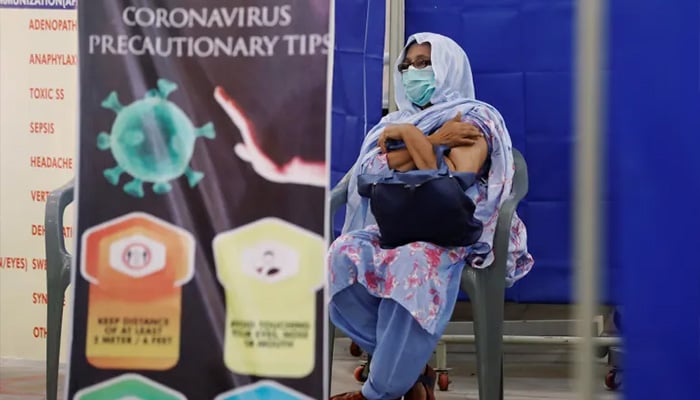Sindh Health Dept issues clarification on four deaths attributed to COVID-19
Citing coronavirus as sole cause of death could lead to fear and panic among citizens, says spokesperson
May 24, 2025

- Health dept says deceased patients were above 60.
- Adds all of them were facing multiple complications.
- "COVID-19 being regarded as common virus across globe."
The Sindh Health Department on Saturday issued a clarification regarding the four deaths attributed to COVID-19 and stated that it was not accurate to solely link the deaths to coronavirus.
In a statement, the provincial health department's spokesperson said that the deceased patients were above 60 years and also suffering from other diseases.
It added that all patients were under treatment at a private hospital and were facing multiple complications.
The spokesperson further stated that COVID-19 is being regarded as a common virus across the globe and citing the virus as the sole cause of death could lead to fear and panic among citizens.
This clarification came after at least four people—mostly elderly individuals with compromised immune systems and pre-existing health conditions—died reportedly of COVID-19 in Karachi amid a marked uptick in cases over the past fortnight, officials and infectious disease experts told The News.
All the fatalities occurred at Aga Khan University Hospital (AKUH), which has reported a steady rise in COVID-19 admissions — a trend described by experts as “unusual” for this time of year.
Officials at the DUHS suspect the current infections may be driven by the JN.1 subvariant of Omicron, a strain known to cause milder symptoms but still capable of causing severe illness in vulnerable populations. “We’re going for gene sequencing to determine the exact variant responsible for the infections in Karachi.”
During the Covid pandemic, Pakistan used a mix of vaccines from Chinese, Russian, European and American manufacturers, including Sinopharm, Sinovac, CanSinoBio, Sputnik V, AstraZeneca, Pfizer-BioNTech and Moderna. The initial vaccine rollout began with frontline workers, followed by the elderly and then the general adult population.
This combination of traditional inactivated virus vaccines and mRNA-based formulations provided a broad immunity shield, which health officials say helped limit the number of Covid deaths in Pakistan to around 30,000 despite multiple waves of the virus and the spread of several variants, including Delta and Omicron.











